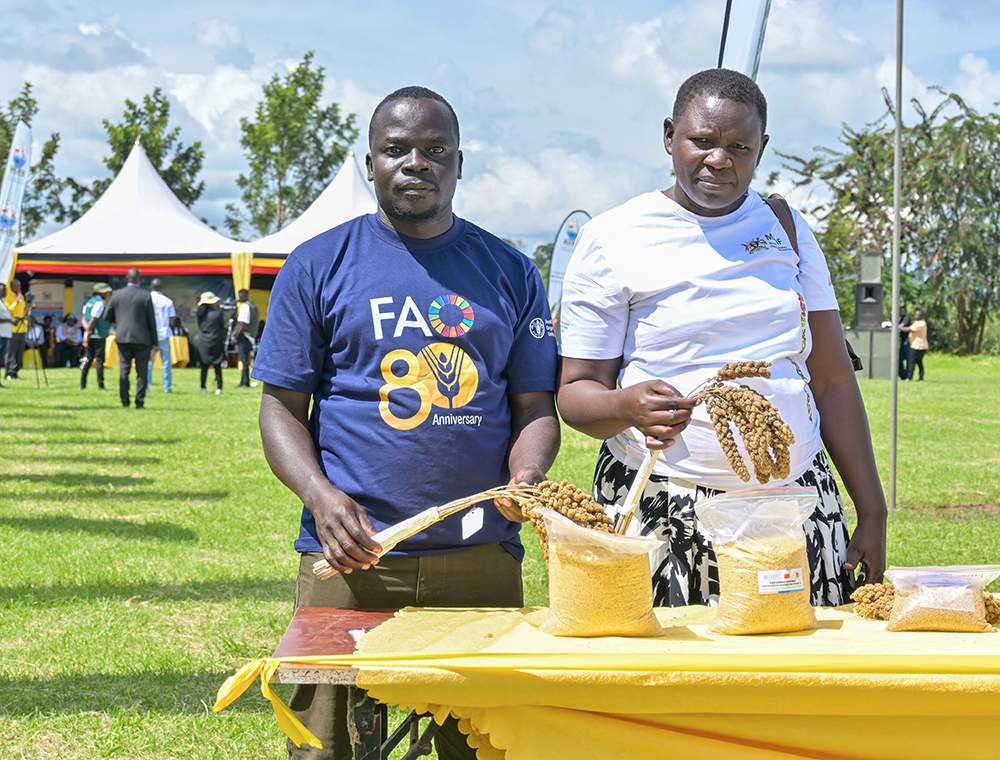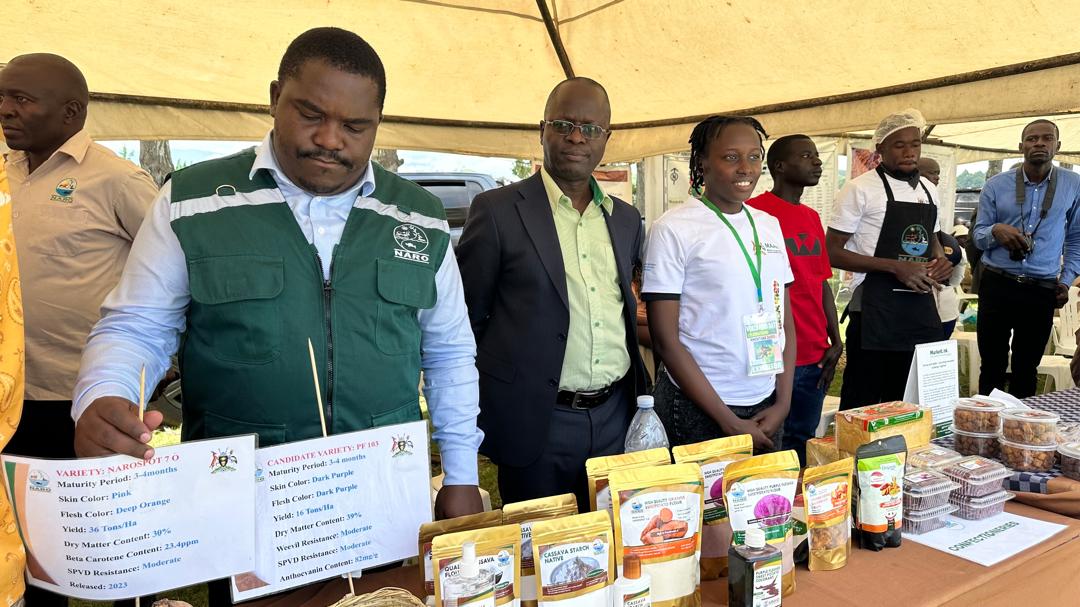'Work with Uganda to sustain food production'
“The conversation on food is universal. And since food is a prerequisite for life, we must discuss and work together towards the sustainability of our food systems,” Tumwebaze said
Scovia Adikini, a senior research scientist explaining to Agriculture minister Frank Tumwebaze and other guests the benefits of fox tail millet varieties that were developed with support from FAO. (Courtesy photos)
________________
Agriculture minister Frank Tumwebaze has asked development partners to work with Uganda to sustain the production of food.
“The conversation on food is universal. And since food is a prerequisite for life, we must discuss and work together towards the sustainability of our food systems,” Tumwebaze said on Thursday, October 16, 2025, during celebrations to mark World Food Day.
The celebrations were held at Rwebitaba Zonal Agriculture Research and Development Institute in Fort Portal city under the theme: Hand in Hand for Better Food and a Better Future.
Adikini Scovia (R), a NARO researcher on Millet and colleague display the new millet varieties.
The day was marked with different activities, including the release to the public of new crop varieties, which are for industry food and nutrition.
Examples of such crops include fox tail millet, which was developed by researchers at the National Agriculture Research Organisation, with support from the Food and Agriculture Organisation, through the FAO-China’s South-South Co-operation.
The new millet reportedly yields up to 2.5 tonnes per hectare, matures at 83 days, and is rich in protein, Vitamin B12, which supports the growth of healthy nerve cells and red blood cells and then Zinc needed for the body’s defensive or immune system.
During the celebrations, the ministry, through its research arm, the National Agriculture Research Organisation (NARO), released to the public the latest crop varieties to further promote and increase production.

Other crop varieties that were released include a new banana called NAROBAN6, which weighs between 26KG-32Kg, and yields about 50 tonnes per hectare. It is tolerant to nematodes, weevils, but also resistant to the Fusarium wilt and Black Sigatoka diseases. Others are potatoes for processing into chips, and these include NAROPOT 7 to 10.
On the eve of World Food Day celebrations, guests first sampled the different tea varieties at the institute, and were also introduced to new tea varieties since the institute is tasked with research on tea.
Commenting on the development, Yergalem Taages Beraki, the FAO country representative in Uganda, asked Ugandan researchers not only to focus on access to enough food all year round to satisfy hunger alone but also to make sure that the food is nutritious to meet the dietary requirements of every Ugandan to live a healthy life.
He explained that the latest IPC report indicates that over 400,000 children, aged from six to 59 months, and 84,000 pregnant or breastfeeding women are either suffering or expected to suffer acute malnutrition across 43 districts in Uganda from March 2025 to February 2026.
“Therefore, there is an urgent need to tackle malnutrition decisively through increasing access to diverse locally available nutritious foods, among other empirically tested nutrition-specific interventions,” he said.